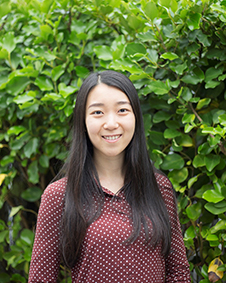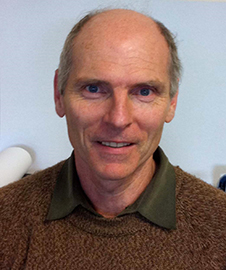 Wednesday 26 September 2018 12:01pm
Wednesday 26 September 2018 12:01pm
Zhuoshi Zhang
Despite the plethora of information available about type-2 diabetes, the ability to understand it, and willingness to engage in it, differs among ethnic groups, Otago research has revealed.
Lead author Zhuoshi Zhang, registered dietitian and PhD candidate, says diabetes is one of the fastest growing chronic conditions in the world, affecting people of all ethnicities in New Zealand.
The prevalence of diabetes is higher among Māori, and those of Pacific and Indian ethnicity compared with those of European descent. Māori and Pacific people with diabetes also experience earlier onset and more complications than New Zealand Europeans with the same condition.
Ethnic minorities also tend to receive less diabetes education, have less knowledge about the condition, are less engaged with diabetes services, and experience higher emotional distress about it.
“Identifying knowledge gaps and barriers to interaction with diabetes services and diabetes education is important if we are to address ethnic inequalities,” says Dr Bernard Venn, of the Department of Human Nutrition.

Dr Bernard Venn
In a study, published in journal Nutrients, the Otago researchers, in collaboration with Dr John Monro of Plant & Food Research, set out to understand the differences in knowledge and beliefs relating to diabetes and nutrition management among people of different ethnicities, as well as their experience and expectation of diabetes care.
They found the 29 study participants, from five ethnic groups, lacked nutritional knowledge and experienced confusion about diet and medication. These detailed discussions were in agreement with the results of earlier, unpublished, work by the researchers in which an online survey found 448 adult New Zealanders also had poor nutritional knowledge and understanding of type 2 diabetes.
Half of the discussion group participants felt they had not received adequate nutrition advice, and many were unaware of, or had limited access to, a diabetes service. They also feared diabetes complications, and expressed willingness to actively manage their condition.
Being exposed to conflicting information, whether from friends and family, the internet, or health professionals, was an issue across all ethnic groups.
When it came to seeking advice, they wanted it to be practical, and delivered in simple, non-medical, language.
Ms Zhang says all participants expressed willingness to modify their diet, given reliable and culturally appropriate guidance, however, they also found sourcing credible dietary information was problematic.
“Raising awareness of nutrition issues related to diabetes among the general public will help ensure appropriate and consistent messages will be disseminated among the population,” she says.
Dr Venn says study participants expressed a desire for more of a partnership between themselves and their medical providers, rather than an authoritarian approach.
“It is important for people with diabetes to be adequately educated in self-management and this requires culturally appropriate advice with practical, achievable goals,” he says.
“Participants were willing to engage in self-care if advice from health professionals was given in plain language, and in a culturally appropriate manner.”
Next steps would be training more dietitians of various ethnic backgrounds to help with ongoing face-to-face support; and the development of an online educational tool endorsed by a professional organisation, that was evidence-based, used lay terms, and was available in a variety of languages.
The study was funded by the Ministry of Business, Innovation and Employment (MBIE) through the Plant & Food Research "Foods for Health" programme.
For more information, contact:
Dr Bernard Venn
Department of Human Nutrition
University of Otago
Email bernard.venn@otago.ac.nz
Electronic addresses (including email accounts, instant messaging services, or telephone accounts) published on this page are for the sole purpose of contact with the individuals concerned, in their capacity as officers, employees or students of the University of Otago, or their respective organisation. Publication of any such electronic address is not to be taken as consent to receive unsolicited commercial electronic messages by the address holder.
FIND an Otago Expert
Use our Media Expertise Database to find an Otago researcher for media comment.
